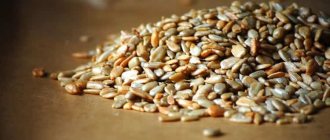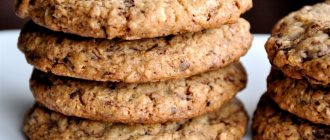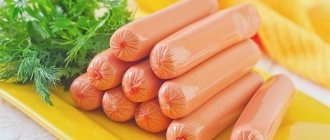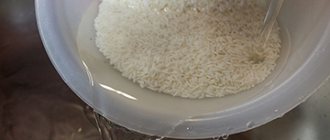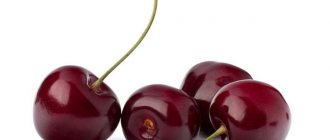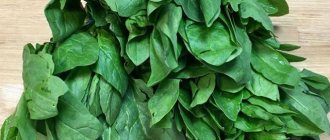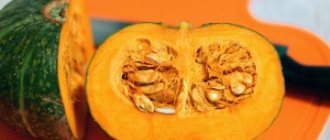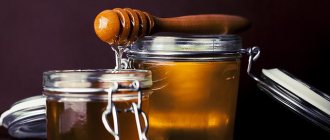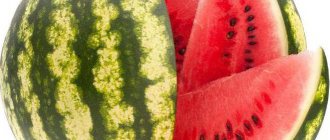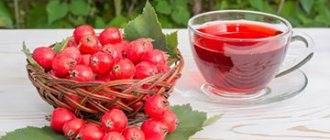The diet of a nursing woman should be balanced and healthy, so the choice of products should be treated with special care. Many mothers are forced to significantly limit the list of foods they eat due to the baby’s poor health. Seeds allow you to diversify the menu. Experts say that pumpkin seeds during breastfeeding are better than others in helping to cope with problems that arise after childbirth.
Is it possible to eat pumpkin (watermelon) seeds during breastfeeding and what are their benefits?
Pumpkin seeds are good for health, however, few people delve into the essence of the issue and know exactly how they affect the body. They are recommended for use by both children and adults. The period of breastfeeding is no exception. The value of the product is not only echoes of traditional medicine; scientific studies have confirmed the benefits of pumpkin seeds for breastfeeding. They are rich in vitamins, minerals and other biologically active substances:
- fats;
- amino acids;
- cucurbitin;
- B vitamins;
- vitamin A;
- folic acid;
- potassium;
- calcium;
- magnesium;
- phosphorus;
- sodium, etc.
Pumpkin seeds have a beneficial effect on the health of nursing mothers and babies.
This composition has a beneficial effect on the female body, exhausted by pregnancy and childbirth. Regular use will help you recover quickly. In addition, pumpkin seeds have the following beneficial properties:
- normalization of metabolism;
- improving the functioning of the gastrointestinal tract;
- replenishment of the body's energy reserves;
- decreased blood sugar levels;
- improving the functioning of the cardiovascular system;
- removal of toxins and waste;
- improvement of the condition of the skin;
- strengthening the defense mechanisms of the immune system;
- normalization of hormonal levels;
- improvement of lactation;
- getting rid of worms;
- increasing the nutritional value of breast milk;
- strengthening teeth and bone tissue;
- normalization of the nervous system, etc.
Because of these properties, doctors recommend pumpkin seeds for lactating women. They are useful not only for the mother, but also for the child.
How dangerous is the product?
During pregnancy and after childbirth (especially when breastfeeding), a woman is responsible not only for herself, but also for the child. Therefore, when deciding to introduce pumpkin seeds, she should monitor the baby’s reaction and introduce them from the minimum allowed dose, gradually increasing it.
A plant product may be harmful in the following cases:
- individual intolerance to seeds (moreover, the mother’s body can well absorb the substances contained in them, while the child reacts with a deterioration in health, and vice versa);
- allergic reaction;
- excessive consumption of the product, accompanied by constipation, colic, and bloating.
With such manifestations, seeds should be excluded from the diet.
Remember that their reasonable and rational use helps to increase lactation and saturate the body with nutrients.
Possible harm to women during lactation
Despite the fact that seeds are very useful during breastfeeding, the active composition of the pumpkin product is associated with certain risks. There is always a risk of individual intolerance. If you don't know how your body will react to a product, try it in very small quantities.
The product is an allergen, so mothers with allergies are not allowed to eat it. In addition, doctors do not recommend use in the first month of a child’s life. Adverse reactions include constipation, flatulence and abdominal pain in the baby. Breastfeeding women are prohibited from eating raw seeds, as the risk of tummy problems in infants increases.
During breastfeeding, it is not recommended to eat seeds purchased in bulk, as the shells may contain dangerous bacteria and pathogenic microorganisms. The use of the product should be limited to women who are overweight or losing weight, as the product is very high in calories and can lead to weight gain.
It has been observed that large amounts of pumpkin seeds in the diet can change the taste of breast milk.
Excessive consumption of the product may aggravate stomach ulcers. In addition, pumpkin seeds cause salt buildup, which can affect joint mobility.
Pumpkin or sunflower?
Choosing between black (sunflower) and white (pumpkin) seeds is not just a matter of personal taste, especially when it comes to breastfeeding. Let’s compare their key beneficial properties, and each mother can draw her own conclusion:
- Sunflower grains contain more vegetable protein, phosphorus and vitamins.
- Black seeds hold the record for the amount of selenium, while white seeds lead in the content of zinc and copper.
- Sunflower is more active than pumpkin in accumulating substances from the soil. This is important because today plants are increasingly grown industrially using chemicals.
- Sunflower seeds are often eaten fried. This is a more allergenic and difficult product for the gastrointestinal tract.
- White pumpkin seeds, unlike black ones, practically do not change the taste of breast milk.
Rules for eating pumpkin seeds while breastfeeding
The baby's gastrointestinal tract organs continue to form for some time after birth. Doctors do not recommend consuming pumpkin seeds for nursing women 3 months after giving birth , but a categorical ban is placed only for the first month of life, until the baby’s body adapts to environmental conditions; in the second month, consuming new products is not so dangerous, but be sure to consult a doctor.
It is not recommended to eat more than 3 seeds for the first time. The reaction to a new product usually appears on the first day, but it should be observed for several days, as there are cases of later negative manifestations. Over time, the dosage can be increased. For a nursing woman, the maximum dose should not exceed 50 grams per day, which must be divided into several doses. You should not eat pumpkin seeds more than 3 times a week.
The manifestation of any reaction in you or your baby should serve as a signal to completely abandon the product for several months, after which you can start according to the same scheme. It is not recommended to eat raw seeds because they provoke increased gas formation; heat treatment during hot water is mandatory.
We eat right
Proper consumption of seeds during breastfeeding significantly reduces the risk of negative consequences.
- In the first weeks of a child’s life, refrain from any experiments with food, including seeds.
- Introduce a new product into your diet in the morning. During the day, it is easier to track a negative reaction and prevent consequences.
- Start with a small portion - no more than 20 g.
- Do not mix with other products. Enjoy white seeds between meals.
- Raw or dried are preferable to fried.
- Even if the baby is well tolerated, do not exceed the recommended daily portion – 80-100 g.
- Clean with your fingers, not your teeth.
- Do not eat seeds with salt, so as not to create unnecessary stress on the kidneys. In addition, salt can cause an unpleasant taste in breast milk.
In what form can a nursing mother eat the seeds?
Proper consumption of foods plays an extremely important role during breastfeeding. The same product in different quantities and with different processing can cause completely opposite reactions. This also applies to pumpkin seeds.
Fried
Heat treatment of seeds is a mandatory measure for hepatitis B. This will reduce the risk of increased gas formation, which is especially important when the baby is bothered by colic. In addition, frying will help get rid of pathogenic microorganisms, which are almost always present on the shell.
It is important to fry the seeds correctly so as not to destroy all the beneficial substances. Use a small amount of oil for frying; it is better to fry in a dry frying pan. Frying in oil is unsafe for health, since the cooking process creates carcinogens and destroys beneficial substances. Do not make the heat too high as the product will burn easily. Store the seeds in a glass jar or cloth bag.
To increase lactation
While breastfeeding, eat the seeds only after they have been lightly roasted. This cooking process increases the amount of fatty acids, which causes an increase in breast milk production. If you have problems with lactation, this is a wonderful property, however, it should be remembered that with a well-established breastfeeding system, this can provoke hyperlactation, and, as a consequence, stagnation, mastitis, etc.
Pumpkin milk
Pumpkin milk is a popular drink in vegan diets. It is used for the following purposes:
- cleansing the body;
- prevention of tumor processes;
- normalization of the functioning of the gastrointestinal tract;
- prevention of anemia;
- normalization of the nervous system;
- improving the functioning of the reproductive system organs, etc.
Compound:
- Pumpkin seeds - 1 cup.
- Water - 2 glasses.
Preparation:
- Soak the peeled seeds in water at room temperature for 2 hours.
It is convenient to soak pumpkin seeds immediately in the container in which you will grind them with a blender. - Grind everything with a blender.
The result of grinding seeds with an immersion blender. - Strain through cheesecloth or a sieve.
Women who suffer from lactose intolerance can drink this healthy pumpkin milk. And also nursing mothers whose children cannot tolerate cow protein.
The remaining cake from pumpkin milk can be dried and used in baking, added to cereals and yoghurts.
When can you eat?
Everyone knows that pumpkin is a vitamin-rich food. Its seeds have medicinal properties. They can relieve seasickness and improve well-being in patients with various diagnoses: arthritis, pharyngitis, diabetes, gastritis, prostatitis. The positive effect of pumpkin seeds on the human body is an internationally recognized fact. It is not for nothing that this delicacy was often served on the royal table. The benefits of the product for maintaining women's health are invaluable:
- used as a means to prevent infertility;
- is an assistant in prolonging youth and external beauty;
- reduces the risk of polyps in the uterus;
- normalizes general well-being during menopause.
Pumpkin seeds also contain many other elements that are beneficial for the human body. These are iron, phosphorus, magnesium, manganese, zinc, copper. Eating this valuable product for humans is a prerequisite for a comfortable life. The lack of vitamins and various elements in the body has a bad effect on the functioning of the heart, blood vessels, and urinary system. Their deficiency is determined by such signs as frequent headaches and constant weakness.
Eating seeds has a positive effect on human immunity. However, you should know exactly how, in what form and quantity you should eat them.
Pumpkin seeds can be an excellent friend for the expectant mother both at the beginning of pregnancy and at the end. In the first trimester, they will help to quickly cope with toxicosis. In the second trimester, when many pregnant women have problems sleeping, the seeds will relieve insomnia. The third trimester will give you the opportunity to eliminate persistent heartburn. You just have to monitor the condition of the expectant mother so that her body is not oversaturated with this product.
In early pregnancy, ripe pumpkin seeds help strengthen the immune system, which plays a huge role in bearing a child. They reduce the risk of developing infections and normalize the functioning of the gastrointestinal tract.
Vitamin A has a positive effect on the quality of vision. The benefits of pumpkin seeds during pregnancy will undoubtedly be noticeable primarily for those expectant mothers who, even before the period of expecting a child, could not boast of vigilance. Pumpkin seeds will help them prevent the problem from worsening. And the seeds will not harm others: vitamin A helps maintain eye health.
B vitamins are involved in metabolism, without them it is impossible.
Vitamin C prevents viruses and bacteria from entering the body, and if they manage to destroy the barrier erected by the protective cells, vitamin C quickly activates the immune system.
Can pregnant women eat fresh pineapples in the first trimester?
Vitamin E is necessary for skin regeneration. Stretch marks, a sagging belly - these troubles that await a young mother after childbirth can be avoided by consuming more vitamin E while expecting a baby.
There are also enough microelements in the seeds. This:
- potassium;
- calcium;
- magnesium;
- iron;
- selenium;
- zinc.
Each of the microelements is necessary for expectant mothers for normal metabolism. During the period of bearing a child, a woman’s body needs increased doses of calcium to ensure the strength of the musculoskeletal system for both herself and the baby. Magnesium and potassium are needed for the heart muscle: their deficiency provokes arrhythmia. Iron is necessary for hematopoiesis. Zinc and selenium maintain the normal functioning of the reproductive system.
Pumpkin seeds are also good for pregnant women because they contain a lot of polyunsaturated acids, including:
- oleic;
- linoleic;
- omega-3;
- omega-6.
These acids normalize fat metabolism, preventing excess deposits. Women during pregnancy often worry about weight gain. So, polyunsaturated acids regulate the process, “not allowing” “excess” to accumulate. Despite this, you should not eat them at night: so that extra calories are not stored in reserve.
The seeds contain amino acids. This:
- histidine;
- arginine;
- lysine;
- cysteine.
Amino acids serve as building materials for cells. The benefits of pumpkin seeds for pregnant women are obvious: the developing fetus takes “material” for its body from the mother, which means she needs to replenish her reserves.
It is useful for pregnant women to eat pumpkin seeds dried or slightly fried throughout their entire pregnancy.
The fat component predominates in pumpkin seeds: if you take 100 g of the product, you can sort them “on the shelves” like this:
- fats – 49 g;
- protein – 35 g;
- carbohydrates – less than 5 g.
In what quantities can pregnant women eat pumpkin seeds? The optimal amount is up to 100 g per day.
The first trimester often turns into real agony for the expectant mother. The woman suffers from toxicosis, manifested by nausea and vomiting. Pumpkin seeds will help: they will reduce suffering. Your appetite will increase and your mood will improve.
The seeds will come to the rescue again: they help cope with troubles.
The 3rd trimester again evokes not the most pleasant emotions in women. Women complain of constipation, which occurs due to pressure from the growing uterus on neighboring organs. To make it easier for you in later stages, eat seeds, but not salted ones.
Choice
It is best to eat your own seeds. To do this, remove the seeds from the pumpkin, rinse off the pulp and dry in the oven for about half an hour, stirring occasionally. If you don’t have this opportunity, or you don’t want to bother, you can buy them in the store. Choose packaged products. It is best not to buy seeds at the market or in bulk due to the risk of becoming infected with pathogenic organisms that live on the shell.
It is better to peel the seeds immediately before use. This way they will bring more benefits to mother and breastfed baby.
Pay attention to the smell of the product. There should be no smell of mold or dampness, as this is a sign of a spoiled product. Pay attention to the appearance of the seeds. Stains, plaque or chips indicate poor quality. It's better not to try the seeds in the store. But if you decide to do this, remember that bitterness and an unpleasant aftertaste are a bad sign. These seeds should not be purchased.
It is not recommended to buy seeds with additives in the form of salt, honey, glaze, etc. The use of such products is accompanied by the risk of developing adverse reactions.
How to choose
Store-bought, packaged pumpkin seeds can be treated with special preparations in production to increase shelf life. If possible, you should harvest the seeds yourself.
Rules for selecting and preparing seeds for a diet during hepatitis B:
- You should not buy pumpkin seeds without the skin. Raw materials may have become contaminated or contaminated during cleaning and packaging. A product without a protective shell deteriorates faster and can also be treated with chemicals for preservation.
- Salted pumpkin seeds consumed during breastfeeding can cause fluid retention in the body, which leads to edema.
- Store-bought seeds with sugar, caramel, and honey contain additional anti-caking and flavoring ingredients, which can affect the quality of the milk.
- Store-bought pumpkin seeds must be washed in warm water and dried in a hot oven for at least 5 minutes.
Comment! You should peel the husks with your hands, avoiding getting them into your mouth. This minimizes the risk of toxins and microbes entering the body.
Reviews
Marina, 23 years old
Pumpkin seeds are my favorite. Fortunately, they can be eaten during breastfeeding. They have been the only way I have saved myself from heartburn since school. I could barely stand it until 3 months, waiting for the doctor to give me permission. It's good that there was no reaction.
Carolina, 28 years old
This is some kind of miracle remedy. There was so much milk from them that it would be enough for the neighbors’ children))) I love it very much, but I had to give up breastfeeding because there was too much milk.
Raya, 25 years old
Oh, when I remember pumpkin seeds, it gets so bad. I was still breastfeeding and decided to nibble on some seeds. For 2 days my daughter screamed because of her stomach. I thought I was going crazy. Well, of course, I ate a lot then.
Sesame seeds
When describing the harm and benefits of seeds, one cannot help but recall such a popular product as sesame kernels. Due to their low calorie content, a nursing woman does not have the risk of gaining excess weight, as with the abuse of sunflower grains. Sesame kernels help to significantly strengthen the immune system of both the child and the mother, which is extremely important in conditions of constant overexertion of a woman during lactation. Also, due to the high calcium content in sesame seeds, the child’s musculoskeletal system, hair, teeth and nails are strengthened.
However, a significant disadvantage of sesame kernels in comparison with pumpkin and sunflower seeds is the inability to consume them for a long time. Thus, a certain interest in spending time during the snack period is lost. But despite this, the benefits of consuming sesame seeds are significant.
For preventive purposes, it is recommended to eat a teaspoon of sesame kernels per day.
